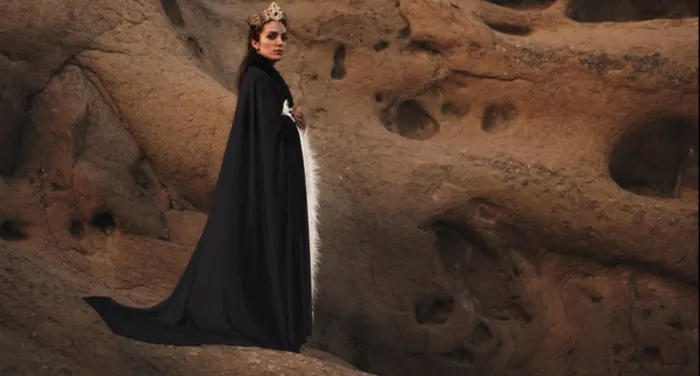
5 Matriarchal Worlds of Science Fiction and Fantasy
This content contains affiliate links. When you buy through these links, we may earn an affiliate commission.
It’s Women’s History Month, but I can’t think of a better time for the speculative possibilities of women’s futures, too.
Science fiction and fantasy are genres that have long been dominated by male readers. But there have always been talented women authors within the genre as well, and many have used their voices to raise issues of gender within their work.
Here are five superior matriarchal worlds of science fiction and fantasy:
This comic book from Canadian cartoonist and animator Aminder Dhaliwal got its start as a webcomic on Instagram. It continues to be updated twice a week, but now you can read the collected volumes in print, too.
With a devoted audience of more than 150,000 readers, Woman World breaks down feminist philosophy into its panels and takes digs at societal gender roles, cultural icons, and more.
While this all might sound pretty heavy, Woman World is known for being incredibly funny.
This story starts when the world’s population of men are wiped out by a birth defect. As a new world takes shape, the story follows a band of women who take on the group name “Beyonce’s Thighs.”
This space opera from Kameron Hurley has been described as a rebuttal to male-dominated genre. The book is set against a world caught in a power struggle between two families and their dying worlds. But, they may have found a way to break free of it on a third ship-planet, Mokshi.
One of the most intriguing elements of this all-female world is its organic nature—in order to replace parts on the ship, the characters must grow them within their bodies, gestating and then birthing them. As a result, motherhood is deeply entwined into the book’s themes.
In this novel from Nicola Griffith, centuries ago on a planet called Jeep the men were all killed by a plague. The women who managed to survive were permanently changed by the virus, too. It’s been ages since Jeep had contact from outside worlds, but suddenly the planet has visitors.
A company has found a way to exploit the planet, but is forced to flee when the virus spreads. Meanwhile, an anthropologist, Marghe, arrives to explore the culture the women have created there, and to test a potential cure.
Through Marghe’s perspective, the novel dives deep into themes of gender, humanity, and self-exploration.
Welcome to Ladyland. It’s a witty feminist utopian science fiction novel from Rokheya Sakhawat Hossain, a Bengali feminist and social reformer of the early 1900s.
The story is set against a woman-run world of electrical technology that has created laborless farming and flying cars—and scientists have not only harnessed solar power but also discovered how to control the weather.
The story also reverses purdah: in Ladyland, women have taken over the public sphere, while men must stay indoors.
The utopia’s brightest features, including nonviolent conclusions to wars and restored health and beauty to the world, are their own statements on the implications of what such a world could be.
The only title of this category whose creator team includes a man. Y: The Last Man is a comic book from Brian K. Vaughn and Pia Guerra.
Somewhat akin to others on this list, this matriarchal world is created by a mysterious incident that kills all Y chromosome carriers all over the world in a single abrupt moment. This then spirals into additional tragedies as these deaths lead to plane crashes and other tragic incidents in the moment, and then settles into a general post-apocalyptic setting run completely by women.
Yet mysteriously, a single man, Yorick Brown, and his male pet monkey Ampersand have somehow survived. The story follows Yorick as he tries to reconnect to his surviving loved ones (his girlfriend, sister, mother). But Yorick finds himself useless, a tagalong, and victim to the political and practical schemings of warring factions who find Yorick of value in some way—or simply want to complete what nature started and get rid of the world’s last man.



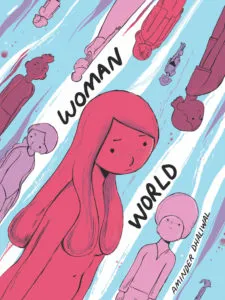 Woman World
Woman World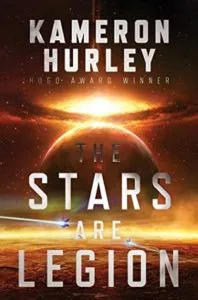 The Stars are Legion
The Stars are Legion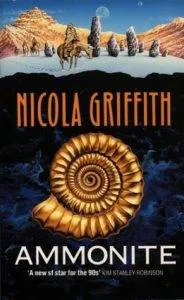 Ammonite
Ammonite Sultana’s Dream
Sultana’s Dream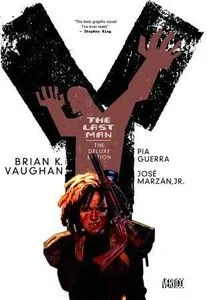 Y: The Last Man
Y: The Last Man